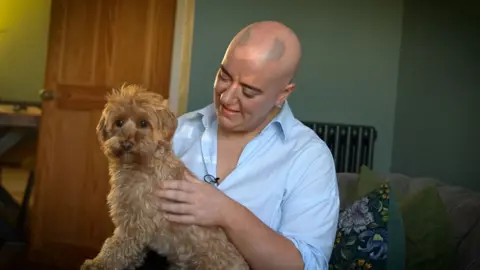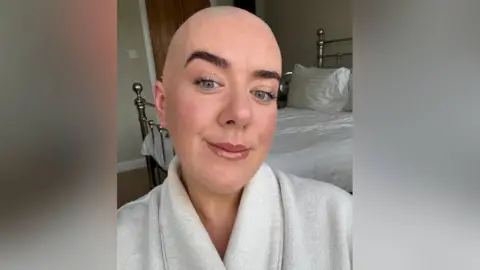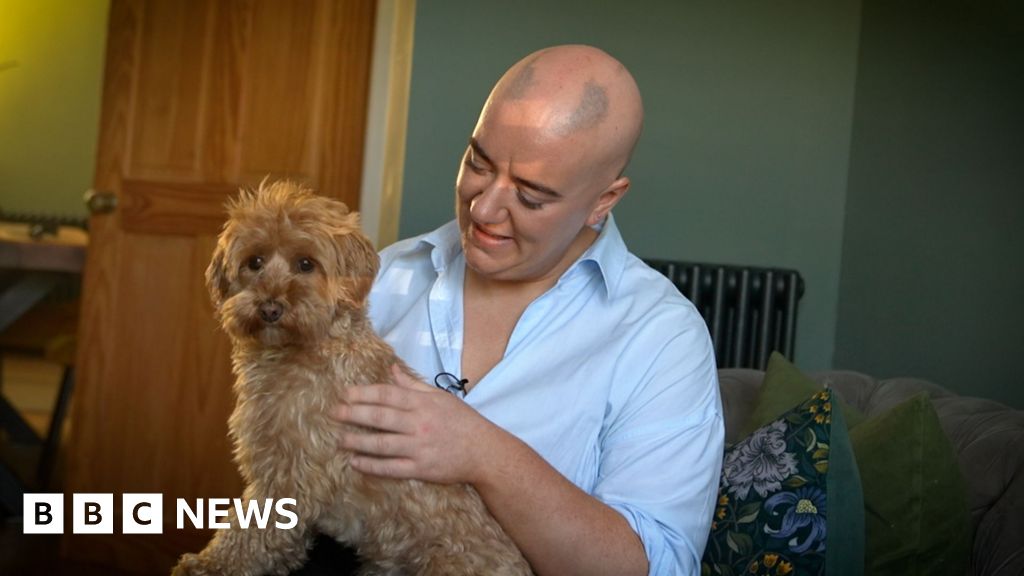

One woman, who has suffered from alopecia since she was 13, said sharing her experience online has forced her to be “more open and more honest” about the condition.
Nicole Thomas, 28, from Cardiff, had successful treatment as a teenager but her hair loss started again last year.
She said she “came here to learn how to cope with this disease” but “it’s still harder every day.”
Earlier this year, New medications recommended It was the first such trial to be conducted on the NHS in England and Wales in patients aged 12 years and over with severe alopecia areata.
Alopecia It is caused by the immune system mistakenly attacking the hair follicle at the root, causing hair to fall out.
Looking back on when she was diagnosed, Thomas said: “It was really difficult at school because it’s hard to imagine a 13-year-old girl having patchy hair or no hair at all.”
“I lost a lot of friends, I couldn’t even talk to my family.
“Leaving home was really hard. I couldn’t go to school so I studied for my GCSEs on my own in my bedroom.”
About a year ago, Thomas noticed that her hair was starting to fall out again and decided to share her progress on social media.
“I knew I had to make a decision: either stay silent and hide again, or be more open and honest about my hair loss.”


“Being able to empathize with other people has been a great comfort to me, and I think by sharing my story, my feelings and my journey, I’ve been able to give other people some comfort as well.”
There is no long-term cure for the disease, but a new drug, ritrecitinib, also known by the brand name Litfulo, is now available in Wales.
Dermatologist Dr Megan Samuel said the new drug offered hope and was “very promising for people suffering from alopecia”.
She said the treatment helped regrow hair and worked by “preventing the immune system from attacking the hair follicles.”
She added: “Some people will suffer from this disease for the rest of their lives.”
“This could help people get the treatment they’ve been waiting for for a long time.”
Nicole said the new treatment “has the potential to be life-changing for many people in our community.”


